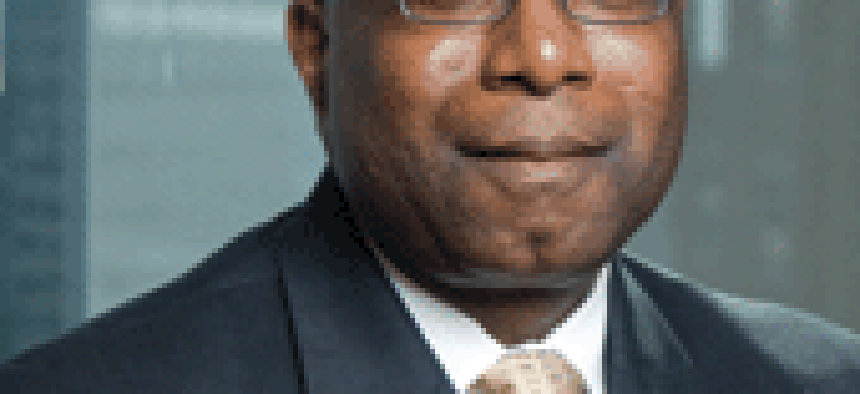Patent rules would impede innovation

The U.S. patent system has been vital to the American economy and the U.S. role inthe world economy. Patents have taken center stage in fostering innovation andserving as the catalyst for innovation.
The U.S. patent system has been vital to the American economy and the U.S. role inthe world economy. Patents have takencenter stage in fostering innovation andserving as the catalyst for innovation innumerous areas.Despite the innovation fueledby our patent system, some peoplehave recently come to questionwhether innovation couldbe significantly stifled by newU.S. Patent and TrademarkOffice (USPTO) rules thatwould place restrictions on thenumber of continuation applicationsand patent claims aninventor can file. GlaxoSmith-Kline, for example, expressed asimilar concern in a recentaction it brought in federalcourt in the Eastern District ofVirginia.GSK is seeking a preliminaryinjunction against implementation ofthe new rules. The company argued,among other things, that these rules,titled "Changes To Practice forContinued Examination Filings,Patent Applications ContainingPatentably Indistinct Claims, andExamination of Claims in PatentApplications," would add uncertaintyabout the ability of pharmaceuticaland biotechnology companies toobtain adequate patent protection fornew inventions and discoveries alongwith subsequent improvements andrefinements to those discoveries.The practice of continuing applicationsis well-settled in U.S. patentlaw. The patent statute and case lawinterpreting the statute make it clearthat patent applicants are permittedto file an unlimited number of continuationapplications that relate tothe filing date of the original application.Filing unlimited applications isimportant because patent applicantscan, in a nonthreatening competitiveenvironment, continue research anddevelopment efforts to improve ontheir discoveries and refine theirtechnologies for commercialization.This is particularly important forpharmaceutical and biotechnologycompanies, which typically file broadinitial patent applications on a classof new drug products. These initialpatent applications are filed wellbefore clinical trials with broad disclosuresand claims with the intentthat the applicant will pursue additionalpatent claims in continuationapplications.The final rules generally restrict anapplicant to two continuation applicationsand place limits and additionalrequirements on the number ofclaims an applicant may submit. Therestrictions in the final rules raise thequestion whether pharmaceutical andbiotechnology companies will havesufficient incentive and motivation tocontinue innovating lifesaving drugs.In its preliminary injunctionmotion, GSK argued that USPTO didnot have the legal authority to issuethe final rules and that the implementationof the rules would result ininadequate patent protection forpharmaceutical and biotechnologycompanies. Such inadequate patentprotection, GSK argued, wouldimpact innovation by those companiesengaged in drug discovery anddevelopment, and the public healthand public interest would ultimatelysuffer. GSK's arguments on the meritsof the case ? along with the court'sconcern that innovation would be stifledand patent protection would belost ? were enough for the court togrant a preliminary injunctionagainst USPTO.The battle isn't over on the issue ofcontinuation applications. GSK andUSPTO will meet again to argue overUSPTO's summary judgment motionwhich, in all likelihood, will be filedthis month. The biotechnology andpharmaceutical industries shouldclosely monitor this case as the adverseimpact on innovation as a result ofimplementing the final rules is likelyto be enormous. The proximate effectand the public interest concern associatedwith the implementation of theserules is that life-saving drugs willbecome unavailable, unobtainable andunaffordable to consumers.As indicated in a letter by Sen.Charles Schumer (D-N.Y.) to USPTO,the final rules, if implemented, willserve "to undermine core principlesof the patenting process," includingthe principle of innovation.

Vincent J. Napoleon is counsel in the Life
Sciences, Corporate and Securities-
Technology and the Government Contracts
practices at Pillsbury Winthrop Shaw Pittman
LLP. He can be reached at
vincent.napoleon@pillsburylaw.com.

Vincent J. Napoleon is counsel in the Life
Sciences, Corporate and Securities-
Technology and the Government Contracts
practices at Pillsbury Winthrop Shaw Pittman
LLP. He can be reached at
vincent.napoleon@pillsburylaw.com.
NEXT STORY: Centurum wins $84M Navy contract